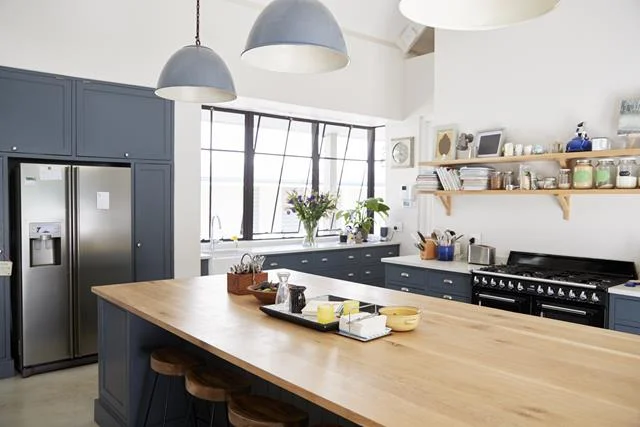The home decor business is currently booming, offering tremendous opportunities for entrepreneurs looking to tap into this thriving industry. With the rising demand for stylish and personalized interiors, there has never been a better time to start your own home decor business. From designing unique spaces to sourcing high-quality products, this industry offers a chance to turn your passion for home decor into a profitable venture.
In order to succeed in the home decor business, it is essential to understand why this industry is experiencing such rapid growth. One of the key factors contributing to its boom is the increasing interest in creating beautiful and comfortable living spaces. As people spend more time at home, they are seeking ways to make their surroundings aesthetically pleasing and functional. This creates a growing market for home decor products and services.
To enter the home decor business, it is crucial to research and identify your niche – what sets you apart from competitors and appeals to your target audience. Whether it’s focusing on eco-friendly designs, vintage pieces, or modern minimalism, finding your unique selling point will help you stand out in the market. With a solid understanding of your niche, you can develop a successful business plan that guides your goals and objectives while also addressing market needs.
By entering the world of home decor entrepreneurship, you have an opportunity not only to turn your passion into profit but also contribute to creating spaces that people love. In the following sections of this article, we will explore various strategies and considerations involved in getting started in the home decor business.
From building a strong brand identity to effectively marketing your products/services and expanding into new markets, this comprehensive guide will provide you with all the necessary steps for success in this dynamic industry. So let’s begin our journey into the exciting world of the home decor business.
Research and Identify Your Niche
In the competitive world of the home decor industry, finding your niche and unique selling point is crucial for success. Identifying a specific target market will help you not only stand out from the competition but also attract customers who are most likely to be interested in your products and services. Here are some steps to help you research and identify your niche in the home decor business.
First, conduct market research to understand the current trends and demands in the home decor industry. Look at what styles, colors, and products are popular among consumers. This will give you an idea of what areas are saturated and where there may be gaps or untapped opportunities.
Next, consider your own style and interests. What sets you apart from other home decor businesses? Do you have a particular design aesthetic or offering that is unique? For example, you may specialize in creating eco-friendly or sustainable home decor products, or focus on a specific theme like bohemian or farmhouse style. Narrowing down your focus will make it easier to target your marketing efforts effectively.
Additionally, consider conducting surveys or gathering feedback from potential customers to understand their preferences and needs. This will provide valuable insights into what they are looking for in terms of home decor products and services.
Once you have identified your niche, it’s important to refine your branding and messaging accordingly. Choose visuals, language, and marketing materials that reflect your unique selling point and resonate with your target audience. By positioning yourself as an expert in that particular niche, you can build credibility among customers who share similar interests.
Developing a Solid Business Plan
When starting a home decor business, it is crucial to begin with a solid business plan that outlines your goals and objectives. This section will guide you through the process of developing a comprehensive business plan that will lay the foundation for your success in the industry.
Setting clear goals and objectives is the first step in creating a strong business plan. Start by defining your long-term vision for your home decor business. What do you hope to achieve in terms of growth, profitability, and market presence? Once you have a clear vision, break it down into smaller, measurable goals that can be achieved within specific timeframes. These goals should be SMART (Specific, Measurable, Attainable, Relevant, and Time-bound), giving you a clear path to follow.
Next, consider how you will differentiate yourself from competitors to create a unique selling point (USP). Research and identify gaps in the market or unmet customer needs that align with your expertise or passion. This will help you carve out a niche for yourself in the home decor industry and position your brand as distinctive and desirable.
In addition to setting goals and identifying your USP, your business plan should also cover other important aspects such as financial projections, marketing strategies, and operational considerations. It is important to conduct thorough market research to understand consumer preferences and trends, as well as to assess competition. This information will inform critical decisions related to pricing strategies, target audience identification, and distribution channels.
Creating an effective business plan will not only provide guidance for your own decision-making process but may also be required if seeking funding from investors or applying for loans. A comprehensive plan demonstrates professionalism and commitment to achieving success in the home decor industry. By setting clear goals and objectives aligned with market opportunities, you are positioning yourself for growth and long-term profitability.
| Section | Data |
|---|---|
| Goals and Objectives | – Define long-term vision
|
| Market Research | – Understand consumer preferences and trends
|
| Financial Projections | – Forecast revenue, expenses, and profits
|
Building a Strong Brand
In the competitive home decor industry, building a strong brand is essential to setting your business apart from the competition. A well-crafted brand identity can attract customers, establish trust, and create a loyal following. This section will guide you through the steps of creating an irresistible identity for your home decor business.
The first step in building a strong brand is defining your target audience and understanding their needs and preferences. Conduct market research to identify the demographic profile of your ideal customers, including their age range, income level, and lifestyle. This information will help you tailor your branding elements to resonate with your target audience.
Once you have a clear understanding of your target audience, it’s time to define your brand’s personality and values. Consider what sets your business apart from competitors and how you want to be perceived by customers. Are you aiming for a luxury feel or a more eco-friendly approach? Whatever direction you choose, make sure it aligns with the preferences of your target audience.
One key element in creating an irresistible brand identity is designing a visually appealing logo and choosing a unique color palette that reflects your business’s personality. Your logo should be memorable and easily recognizable, while the color palette should evoke the desired emotions in line with your brand image.
Having well-designed marketing materials such as business cards, packaging, and promotional materials also plays a vital role in strengthening your brand identity. These materials should reflect the same design elements as your logo and color palette, ensuring consistency across all touchpoints.
Furthermore, consider developing a compelling brand story that resonates with customers on an emotional level. Share the inspiration behind starting your business or highlight any unique craftsmanship or production methods used in creating your home decor products. Customers are more likely to connect with brands that have authentic stories they can relate to.
Finally, don’t forget about maintaining consistent branding throughout all aspects of your business, including online platforms, social media presence, and physical stores (if applicable). Consistency in messaging, tone of voice, and visual aesthetics will help reinforce your brand identity and establish a strong presence in the home decor market.
Creating an irresistible brand identity takes time and effort, but it is an essential step towards building a successful home decor business. Stay true to your brand values, consistently deliver quality products and services, and keep listening to your customers’ needs to ensure that your brand remains relevant in the ever-evolving home decor industry.
| Branding Elements | Description |
|---|---|
| Logo | A visually appealing and easily recognizable logo that represents the brand’s personality. |
| Color Palette | A unique selection of colors that evoke desired emotions and reflect the brand image. |
| Marketing Materials | Well-designed business cards, packaging, and promotional materials that maintain consistency with the logo and color palette. |
| Brand Story | An authentic story that connects with customers on an emotional level. |
Sourcing Suppliers and Products
In order to succeed in the home decor business, it is crucial to find reliable suppliers who offer high-quality products that align with your niche. One way to source suppliers is through trade shows and industry events. These events allow you to meet various suppliers in person, examine their products firsthand, and establish relationships with potential partners.
Additionally, online directories and platforms specifically designed for sourcing suppliers can also be valuable resources. Websites such as Alibaba, Global Sources, and Thomasnet provide a vast network of suppliers from around the world.
When searching for suppliers, it is important to consider factors such as pricing, minimum order quantities (MOQs), and shipping times. Comparing different suppliers based on these factors will help you make informed decisions about which ones are the best fit for your business.
Once you have identified potential suppliers, it is essential to conduct thorough research on their reliability and reputation. Look for reviews or testimonials from other businesses that have worked with them in the past. It may also be helpful to request samples of their products before committing to a partnership. This will ensure that you are satisfied with the quality of their items and that they meet your customers’ expectations.
In addition to sourcing products from external suppliers, you may consider designing and manufacturing your own home decor items. This gives you complete control over the quality, design, and uniqueness of your products. However, keep in mind that this requires significant investment in terms of time, resources, and expertise.
Creating an Online Presence
In today’s digital age, having a strong online presence is essential for any business, including the home decor industry. Creating an attractive and user-friendly website is crucial to showcase your products and attract potential customers. Additionally, developing a strategic social media strategy can help you reach a wider audience and engage with your target market effectively.
When it comes to creating a captivating website, it’s important to consider both design and functionality. Your website should have an appealing layout that represents your brand and the aesthetic of your home decor products. High-quality product photos and detailed descriptions are also essential in order for customers to make informed purchasing decisions.
In terms of functionality, make sure that your website is easy to navigate and mobile-friendly. Customers should be able to find what they’re looking for quickly and easily, whether they’re browsing from their desktop or mobile device. Incorporating features such as filters, search bars, and customer reviews can enhance the user experience and encourage visitors to stay on your site longer.
Nowadays, social media platforms play a vital role in connecting with customers and promoting your home decor business. Identify which platforms are most popular among your target audience – whether it be Facebook, Instagram, Pinterest, or others – and establish a strong presence on those platforms. Regularly post engaging content that showcases your products or offers valuable tips or inspiration related to home décor.
Interactive features such as quizzes or polls can also encourage audience engagement and drive traffic to your website. Furthermore, collaborating with influencers or partnering with complementary brands can help expand your reach and increase brand exposure.
Creating an online presence requires constant effort and monitoring. Stay active on social media by consistently posting new content, responding to comments or messages promptly, and keeping up-to-date with any trends or changes within the industry. Continuously analyzing data and metrics will provide insights into what strategies are working best for you so that you can refine your online presence even further.
Effective Marketing Strategies
Marketing plays a crucial role in the success of any business, including the home decor industry. Effective marketing strategies are essential for reaching and engaging your target audience, raising brand awareness, and driving sales. In this section, we will explore some key marketing strategies that can help you promote your home decor business and attract customers.
Identify Your Target Audience
Before you can effectively market your products, it is important to identify your target audience. Understanding their demographics, preferences, and needs will allow you to tailor your marketing efforts specifically to them. Conducting market research or using customer surveys can provide valuable insights into who your ideal customers are and what motivates them to make purchasing decisions.
Create Compelling Content
One of the most effective ways to engage with your target audience is by creating compelling content that resonates with them. This includes high-quality images showcasing your products, informative blog posts about interior design tips and trends, videos demonstrating how to use your products, or even hosting webinars or live stream events on social media platforms.
By providing valuable content that educates, inspires, or entertains your audience, you can build trust and establish yourself as an expert in the home decor industry.
Utilize Social Media
Social media platforms offer powerful tools for promoting your home decor business. Create accounts on popular platforms such as Instagram, Facebook, Pinterest, and Houzz to showcase your products and connect with potential customers. Engage with followers by responding to comments and messages promptly and sharing user-generated content featuring your products. Collaborate with influencers or bloggers in the home decor niche who have a large following to increase brand visibility and reach a wider audience.
Invest in Paid Advertising
While organic reach on social media is valuable, investing in paid advertising can significantly boost visibility and generate leads for your home decor business. Consider running targeted ads on social media platforms or using search engine advertising to appear in the top search results when potential customers are looking for home decor products. Experiment with different ad formats, such as image ads, video ads, or carousel ads, and consistently monitor and optimize your campaigns for maximum effectiveness.
Implementing effective marketing strategies is crucial for success in the home decor business. By identifying your target audience, creating compelling content, utilizing social media platforms, and investing in paid advertising, you can reach and engage with potential customers and build a strong brand presence in the competitive home decor market.
Establishing Strong Networks
Establishing strong networks in the home decor business is essential for success. By collaborating with designers, decorators, and influencers, you can expand your reach, gain credibility, and tap into new markets. These partnerships allow you to leverage the expertise and reputation of others in the industry to enhance your own brand and increase your visibility.
When it comes to collaborating with designers and decorators, it’s important to build relationships based on mutual trust and respect. Reach out to local professionals in your area or attend industry events where you can connect with like-minded individuals.
Offer them incentives such as discounts on your products or services in exchange for featuring your brand in their projects or recommending you to their clients. This type of collaboration not only helps showcase your products but also establishes you as a trusted resource in the industry.
In addition to working with designers and decorators, partnering with influencers can be a highly effective strategy for reaching a wider audience. Influencers have built a dedicated following who trust their opinions and recommendations. Look for influencers whose style aligns with your brand values and target market.
Collaborate with them by providing free samples of your products or even sponsoring their content creation efforts. This way, they can showcase your offerings to their followers through product reviews, tutorials, or home styling videos. The key is to find influencers with an engaged audience that matches your target customer profile.
By establishing strong networks with designers, decorators, and influencers, you open up countless opportunities for growth in the home decor business. These collaborations can lead to increased brand recognition, expanded market reach, and enhanced credibility among customers. Remember that building these relationships takes time and effort but can ultimately propel your business to new heights.
Pricing and Profitability
When starting a home decor business, one crucial aspect to consider is pricing and profitability. In this section, we will delve into the importance of calculating costs and setting competitive prices in order to thrive in this industry.
First and foremost, it is essential to accurately calculate your costs in order to determine your pricing strategy. Start by analyzing all expenses incurred in running your business, such as purchasing products from suppliers, packaging materials, shipping fees, marketing costs, and operational expenses. Creating a spreadsheet or using accounting software can help you keep track of these expenditures effectively.
Once you have a clear understanding of your costs, you can then set competitive prices that will not only cover those expenses but also generate profit. Researching the market and competitors’ pricing is crucial during this stage. Take into consideration factors like the quality of your products, unique selling points, target customers’ willingness to pay, and market trends.
To help you determine the right pricing strategy for your home decor business, consider implementing some of the following approaches:
- Cost-plus Pricing: This method involves adding a markup percentage to your total costs to determine the selling price.
- Competitive Pricing: Analyze what similar businesses are charging for similar products and adjust accordingly.
- Premium Pricing: If you differentiate your products with exclusive features or high-end materials, you may opt for premium pricing.
Remember that pricing strategies should be flexible and adaptable. Regularly reassessing and adjusting your prices based on market demand and customer feedback is crucial for long-term success.
Managing Inventory and Fulfillment
Managing inventory and fulfillment is a crucial aspect of running a successful home decor business. Efficiently handling orders and shipping ensures that customers receive their products in a timely manner, leading to customer satisfaction, repeat business, and positive reviews. In this section, we will discuss some strategies and best practices for managing inventory and fulfilling orders effectively.
Inventory Management
Proper inventory management is essential to meet customer demand while minimizing costs associated with overstocking or out-of-stock situations. One way to ensure efficient inventory management is by implementing an inventory tracking system. This system can help you keep track of your stock levels, anticipate trends, and identify popular products that need replenishing. By using technology such as inventory management software or barcode systems, you can streamline the process of tracking your inventory accurately.
Another important aspect of effective inventory management is conducting regular audits. Auditing your inventory helps you identify any discrepancies or errors in stock levels and allows you to take corrective measures promptly. Additionally, it is beneficial to analyze sales data to identify patterns and forecast future demand accurately. By understanding your customers’ buying habits, you can optimize your inventory levels to meet their needs without excess stock.
Fulfillment Process
Efficient fulfillment processes are key to delivering customers’ orders on time. To ensure smooth order fulfillment, it is crucial to have clear procedures in place from the moment an order is placed until it reaches the customer’s doorstep. Here are some steps you can take to improve your fulfillment process:
- Order processing: Implement an automated system that streamlines the order processing workflow. This includes verifying payment details, generating packing slips or invoices, and sending order confirmations to customers.
- Packaging: Invest in high-quality packaging materials that protect products during transit while also showcasing your brand. Adequate packaging not only ensures that items arrive undamaged but also enhances the overall customer experience.
- Shipping options: Research and compare different shipping carriers to find the most reliable and cost-effective options for your business. Providing a range of shipping options at various price points can give customers flexibility while allowing you to optimize costs.
- Tracking and communication: Provide customers with tracking information so they can monitor the progress of their orders. Additionally, keep customers informed about any delays or issues that may arise during the fulfillment process, ensuring transparency and managing expectations.
Efficiently managing inventory and fulfillment is crucial for the success of your home decor business. By implementing effective inventory management techniques and streamlining your fulfillment process, you can provide exceptional customer service while optimizing costs and keeping your business running smoothly.
Providing Exceptional Customer Service
Providing exceptional customer service is crucial for any business, and the home decor industry is no exception. When customers have a pleasant experience with your business, they are more likely to become loyal and repeat customers. Additionally, satisfied customers can also become advocates for your brand and recommend your products to others. Therefore, focusing on building customer loyalty and satisfaction should be a top priority in the home decor business.
One way to provide exceptional customer service is by offering personalized experiences. Take the time to understand your customers’ preferences and needs, and tailor your recommendations accordingly. This can include offering personalized product suggestions based on their style preferences or providing customized design consultations. By going above and beyond to meet their individual needs, you will make them feel valued.
Another important aspect of providing exceptional customer service is ensuring prompt and effective communication. Responding promptly to inquiries and addressing any concerns or issues in a timely manner shows that you value your customers’ time and are committed to resolving any problems they may encounter. Consider implementing live chat support or a dedicated customer service hotline to improve accessibility.
Furthermore, it is essential to prioritize transparency throughout the customer journey. Clearly communicate information about shipping times, return policies, and any potential fees upfront so that customers know exactly what to expect. Honesty and transparency help build trust with your customers, which is crucial for long-term relationships.
Expanding Your Business
Identifying Growth Opportunities
As you establish your home decor business and find success in your chosen niche, it is important to consider expansion opportunities. Exploring new markets and opportunities can help you reach a broader customer base and increase your revenue.
One way to identify growth opportunities is by conducting market research to identify untapped markets or emerging trends within the home decor industry. By staying up-to-date with industry news and monitoring consumer behavior, you can position your business to take advantage of new opportunities.
Diversification and Product Expansion
Diversification is a key strategy for expanding your home decor business. Consider introducing complementary products that align with your brand and cater to the needs of your target customers. For example, if you specialize in selling home textiles such as bedding and curtains, you could expand into related categories like table linens or bath accessories. Another approach is to offer customized or personalized products that allow customers to add their own personal touch to their home decor.
Entering New Geographic Markets
Expanding into new geographic markets can also be a viable option for growing your home decor business. Conducting market research specific to the new locations will help you understand the local preferences, competition, and potential demand for your products. This research will guide your marketing efforts and ensure that you tailor your offerings to meet the needs and tastes of customers in different regions.
Forming Strategic Partnerships
Collaborating with other businesses, designers, decorators, or influencers can open doors to new markets and increase brand exposure. Seek partnerships that align with your brand values and target audience.
For instance, partnering with interior designers or home renovation experts can help showcase your products in real-life settings or provide design consultation services along with product recommendations. Influencers on social media platforms who have a large following in the home decor niche can also help promote your brand to their engaged audience.
Expanding your home decor business requires careful research, planning, and strategic decision-making. By identifying growth opportunities, diversifying your product offerings, exploring new geographic markets, and forming strategic partnerships, you can position your business for long-term success. As you embark on this journey to expand your business, remember to stay focused on customer satisfaction and continuously adapt your strategy to meet the evolving needs of the home decor market.
Conclusion
In conclusion, starting a home decor business can be a lucrative and fulfilling venture. The booming industry offers numerous opportunities for those who are willing to put in the effort and have a unique selling point. By conducting thorough research and identifying your niche, developing a solid business plan, and building a strong brand, you can set yourself up for success.
Creating an online presence through a captivating website and well-executed social media strategy is essential in today’s digital age. It allows you to reach and engage with your target audience effectively. Additionally, establishing strong networks by collaborating with designers, decorators, and influencers can further boost your brand’s visibility and credibility.
Pricing and profitability play a crucial role in the success of your home decor business. It is important to calculate costs accurately and set competitive prices that allow you to make a profit while remaining attractive to customers. Managing inventory and fulfillment efficiently is also vital for ensuring smooth operations and customer satisfaction.
Providing exceptional customer service goes hand in hand with building customer loyalty and satisfaction. By going above and beyond to meet customer needs, you can create a positive reputation for your business and encourage repeat business.
Finally, as your home decor business grows, it is important to explore new markets and opportunities for expansion. Consider expanding into different areas or offering new products or services to keep up with evolving trends.
Your journey to success in the home decor business begins now. With determination, innovation, attention to detail, and a passion for design, you can create a thriving business that brings beauty into people’s homes while generating steady income for yourself. Remember that success does not happen overnight – it requires hard work, perseverance, adaptability, continuous learning, and staying true to your brand values.
So take the first step today – research your niche market thoroughly; draft an outstanding business plan; unleash your creativity to develop high-quality products; nurture professional relationships with suppliers, designers, decorators; foster connection with influencers on diverse social media platforms; track the best marketing strategy for your target audience; cater to customer’s demand with exceptional service. Good luck on your exciting journey in the home decor business.
Frequently Asked Questions
How do I start my own decor business?
Starting your own decor business requires careful planning and execution. First, conduct thorough market research to identify your target audience, competitors, and trends in the industry. Determine your unique selling proposition and develop a brand identity that resonates with your desired customers. Next, create a detailed business plan outlining your financial projections, marketing strategies, and operational procedures.
Consider whether you will specialize in a specific aspect of home decor or offer a broader range of products and services. Sourcing suppliers and creating partnerships may be necessary to ensure a diverse product inventory. Additionally, establish an online presence through a website or social media platforms to showcase your offerings and engage with potential clients. Lastly, focus on delivering exceptional customer service to build loyalty and attract repeat business.
Is home decor a good business to start?
Home decor can be a lucrative business opportunity for many reasons. The demand for aesthetically pleasing living spaces is constantly growing as people seek comfort and style in their homes. With the ease of reaching a wide audience through e-commerce platforms and social media marketing, there are ample opportunities to connect with potential customers globally.
Furthermore, the home decor industry offers various niches to cater to different consumer preferences such as modern, vintage, minimalist, or eco-friendly designs. By staying up-to-date with current design trends and offering unique products or services, you can differentiate yourself from competitors in the market.
Is Home decor Niche profitable?
The profitability of the home decor niche largely depends on several factors such as market conditions, target audience, pricing strategy, and cost management. While the overall demand for home decor is steady, fluctuations can occur due to economic conditions or changing consumer preferences. Therefore, it is essential to conduct thorough market research to identify profitable segments within the niche that align with your expertise or interests.

This can involve exploring specific themes such as sustainable decor or niche markets like luxury home accessories catering to affluent clientele. Effective pricing strategies that consider production costs while remaining competitive are crucial for profitability. Additionally, maintaining efficient inventory management, minimizing overhead costs, and establishing strong supplier relationships can contribute to the overall profitability of your home decor business.

Hello, lovely readers! I’m Sheila Collins, and I’m delighted to be your trusted guide on this exciting journey of home improvement, design, and lifestyle. As the founder and editor-in-chief of Home Guide Blog, I’m passionate about all things related to homes, and I’m here to share my knowledge, experiences, and insights with you.





